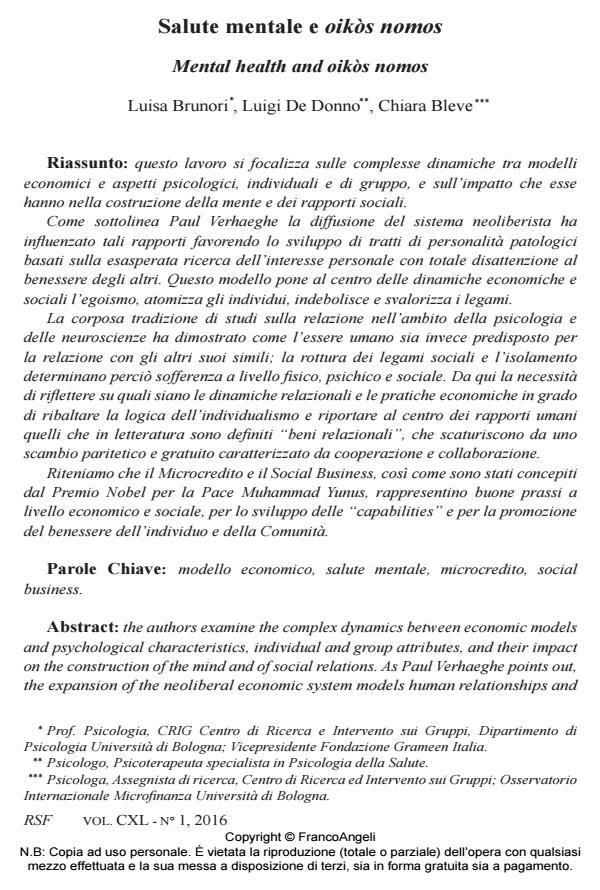Mental health and oikòs nomos
Journal title RIVISTA SPERIMENTALE DI FRENIATRIA
Author/s Luisa Brunori, Luigi De Donno, Chiara Bleve
Publishing Year 2016 Issue 2016/1
Language Italian Pages 9 P. 43-51 File size 1646 KB
DOI 10.3280/RSF2016-001003
DOI is like a bar code for intellectual property: to have more infomation
click here
Below, you can see the article first page
If you want to buy this article in PDF format, you can do it, following the instructions to buy download credits

FrancoAngeli is member of Publishers International Linking Association, Inc (PILA), a not-for-profit association which run the CrossRef service enabling links to and from online scholarly content.
The authors examine the complex dynamics between economic models and psychological characteristics, individual and group attributes, and their impact on the construction of the mind and of social relations. As Paul Verhaeghe points out, the expansion of the neoliberal economic system models human relationships and generates, in the individual, pathological personality traits, i.e. an excessive research for personal interests and an utter disregard for others’ wellbeing. The present system places selfishness at the core of economic and social dynamics, atomizes individuals, weakens and depreciates relational ties. Studies on relationships, in psychology and neuroscience, demonstrate on the other hand that human beings are relational beings. The breakdown of social ties and social isolation thus bring about physical, mental and social distress. Hence, the authors suggest to reflect on how relational dynamics and economic practices could reverse the current individualistic rationale and bring back relationships labeled by research as "relational goods" to the heart of human interactions. Such relational goods breed in equal and free of charge interactions founded on cooperation and collaboration. Finally, the authors underline that socioeconomic good practices, such as microcredit and social business - envisaged by Nobel Peace Prize winner Muhammad Yunus - enhance the development of human "capabilities" and promote the wellbeing of individuals and community. .
Keywords: Economic model, mental health, microcredit, social business
Luisa Brunori, Luigi De Donno, Chiara Bleve, Salute mentale e oikòs nomos in "RIVISTA SPERIMENTALE DI FRENIATRIA" 1/2016, pp 43-51, DOI: 10.3280/RSF2016-001003